ElectROBatt 2024
Electrochemistry of Batteries and Energy Storage Technologies





October 31 - November 1, 2024 Radisson Blu Hotel, Bucharest, Romania
Invited speakers
Electrochemistry of batteries and energy storage technologies 2024

Dr. Johan Blondelle
Key speaker from the European Commission, DG Research & Innovation (Joining us with a virtual keynote address)

Prof. Julia Amici
Politecnico di Torino, Italy
Julia Amici obtained her PhD in Material Sciences and Engineering from Politecnico di Torino, Italy in 2013. She conducted her Post Doc in the Electrochemistry Group at Politecnico di Torino DISAT, on post Li-ion technologies, in particular Li-Air and Li-Sulfur (Li-S) batteries. She participated to different European and national projects on Li-Air, Li-S and Li-ion systems, preparing, testing and optimizing electrode materials and various electrolytes. She is currently Associate Professor at Politecnico di Torino and her research activities are focused on synthesis and characterization of highly efficient composite polymer electrolytes for Li-ion, Li-air and Li-S batteries. She is the P.I. for Politecnico di Torino in the EU funded projects SUBLIME (H2020) and ADVAGEN (Horizon Europe), both on all solid-state Li-ion batteries. She is actively participating in Battery2030+ initiative (co-author of the Roadmap: “Inventing the Batteries of the Future, Research Needs and Future Actions”) and has been selected as an expert in WG1:” New and Emerging Battery Technologies” of ETIP EBA Batteries Europe Platform. She is author of above 60 publications in international peer-reviewed journals, on materials, Li-ion, Li-Air and Li-S systems and 2 international patents.

Dr. Simon Clark
SINTEF, Norway
Dr. Simon Clark is a Senior Research Scientist at SINTEF in Trondheim, Norway. His work explores the interface between battery cells and the digital world with a focus on physics-based simulations, linked data, and the semantic web. He earned his Dr. rer. nat. degree in Computational Electrochemistry from Ulm University in cooperation with the German Aerospace Center (DLR).

Prof. Mircea Dincă
Massachusetts Institute of Technology
Mircea Dincă was born in Făgăraş, a small Transylvanian town in central Romania. He obtained his Bachelor of Arts degree in Chemistry from Princeton University in 2003, and did his graduate work at UC Berkeley, where he obtained a PhD in Inorganic Chemistry in 2008. After a two-year stint as a postdoctoral associate working on heterogeneous electrocatalytic water splitting at MIT, he became an Assistant Professor in the Department of Chemistry at MIT in July 2010. Promoted to Associate Professor in 2015 and to Professor of Chemistry in 2020, he currently holds the W. M. Keck Chair as Professor of Energy at MIT. His research interests focus on creating and manipulating microporous and low-dimensional solids with molecular precision for applications in various energy efficiency and environmental challenges. These include, but are not limited to: electrical energy storage and conversion, heterogeneous catalysis, fresh water harvesting, efficient air conditioning, and photophysical processes. He has been named to the world’s most cited Chemists list annually since 2014 and has received a number of awards, most prominently the Alan T. Waterman Award (2016), the ACS Award in Pure Chemistry (2018), the Blavatnik National Award in Chemistry (2021), and a Ross Brown Foundation Fellowship (2023).
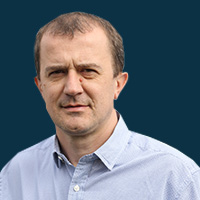
Prof. Robert Dominko
National Institute of Chemistry, Slovenia
Robert Dominko is a research professor at the National Institute of Chemistry and a professor at the University of Ljubljana. He is head of the Battery Group at the National Institute of Chemistry and deputy director of the ALISTORE-ERI network. He received his PhD in materials science from the University of Ljubljana in 2002. Since his PhD, his research interests have been in the field of materials science and electrochemical systems for energy storage, mainly focussing on advanced battery systems. He was the coordinator of two large-scale EU projects dealing with the development of Li-S batteries. His current research interests focus on different types of multivalent batteries and the implementation of smart functions in battery cells. He is closely associated with the Battery 2030+ initiative and with Batteries Europe, where he is one of the co-leaders of the working group preparing a strategy for the education level. He is involved in the MESC Master programme (https://mesc-plus.eu/) and in the PhD school DESTINY (https://www.destiny-phd.eu/). He has published more than 200 review papers and is co-author of 15 patents. He is a member of the Slovenian Academy of Engineering Sciences.
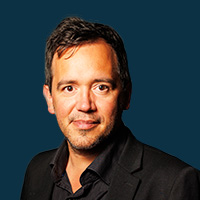
Prof. Alejandro A. Franco
Universite de Picardie Jules Verne, France
Dr. Alejandro A. Franco is a Full Professor at the Université de Picardie Jules Verne in the city of Amiens, France, and an Honorary Member of the Institut Universitaire de France. He has 23 years of experience in the field of multiscale modeling of electrochemical energy devices. He leads the Theory Open Platform at the ALISTORE European Research Institute. Prof. Franco has been awarded an ERC consolidator grant for his pioneering ARTISTIC project, focusing on battery manufacturing digitalization through multiscale modeling and artificial intelligence. Additionally, he has received an ERC Proof of Concept grant for his SMARTISTIC project, aimed at assisting battery manufacturers with mixed reality technology. He has actively participated in numerous European projects and bilateral collaborations with the battery and fuel cell industry. Prof. Franco serves as the Chairman of the Expert Group “Digitalization, Measurement Methods, and Quality” in the European LiPLANET battery pilot lines network. In 2019, he was honored with the French Prize for Pedagogy Innovation for his utilization of Virtual Reality in teaching battery sciences. He has authored over 150 publications, 12 invited book chapters, 3 edited books, and 23 patents. Prof. Franco delivered more than 135 invited lectures in international conferences, as well as over 60 invited seminars in prestigious universities, institutes, and companies. He also coordinates the Erasmus+ i-MESC International Master Programme (Interdisciplinarity in Materials for Energy Storage and Conversion).
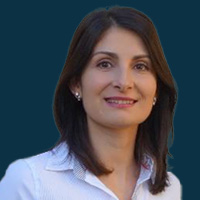
Dr. Camélia Matei Ghimbeu
CNRS, France
Dr. Camélia Matei Ghimbeu is a Research Director at Material Science Institute in Mulhouse (IS2M), CNRS, France. She received in 2007 her PhD from University of Metz, France and TU Delft, The Netherlands and her Habilitation in 2015 from University of Haute Alsace, France. She was awarded in 2017 the CNRS Bronze Medal, in 2018 the Award “Solid-State Chemistry Division” (French Chemistry Society) and in 2019 the award Guy Ourisson (Gutenberg Cercle), for her research works devoted to the design of carbon-based materials with controlled characteristics for energy storage (batteries / supercapacitors) and environmental applications. Author of 125 articles and about 170 communications, she is leading the “Carbon and Hybrid Materials” group at IS2M since 2016, she is member of French network of Electrochemical Storage of Energy (RS2E) and member of National Committee for Scientific Research (CoNRS), section 15 (chemistry of materials, nanomaterials and processes).

Prof. Patrik Johansson
Chalmers University of Technology, Sweden
Patrik Johansson is Full Professor in Physics at Chalmers University of Technology, Sweden, and holds a Distinguished Professor grant from the Swedish Research Council (48.5 MSEK, 10 years). At Chalmers he leads a group of ca. 12 PhD students and postdocs, as well as being co-director of ALISTORE-ERI – one of Europe’s largest industry-academia networks within the field of modern batteries – and the director of the Graphene Flagship, one of the EC’s largest R&I initiatives hitherto. He continuous aims at combining understanding of new materials at the molecular scale, often via ab initio/DFT computational methods and IR/Raman spectroscopy, with battery concept development and real battery performance – with a special interest in all kinds of electrolytes. Most notably, his team won the BASF Open Innovation Contest on Energy Storage in 2015 for his new ideas on Al-battery technology (€100,000) and in 2020 he was awarded “l’Ordre des Palmes Académiques, Grade d’Officier” by the French Ministry of Education. He has published over 230 papers and started the software company Compular together with former PhD students.

Wouter Ijzermans
Executive Director of BEPA (Batteries European Partnership Association)
Wouter IJzermans is the Executive Director for BEPA, representing the battery research and industry communities in the Horizon Europe Batt4EU Partnership. The Batt4EU Partnership provides the R&I funding needed to build a globally competitive and sustainable battery value chain in Europe. Before his time as the BEPA Executive Director, Wouter was active for over 10 years in the Dutch energy sector, working on various European-funded projects on energy storage and energy infrastructure development.

Prof. Philippe Poizot
Université de Nantes, France
Philippe Poizot is currently full Professor in Chemistry at Nantes University (Institut des Matériaux de Nantes Jean Rouxel, IMN), and has been working on electrochemical systems for the past 25 years. He coleads the Battery Group at IMN and is co-director of the joint laboratory IMNBlue Lab between IMN and the Blue Solutions battery manufacturer. He received his PhD in materials science from the University of Picardy Jules Verne (UPJV/LRCS, Amiens, France) in 2001. Then, he joined Switzer’s group (University of Missouri-Rolla, USA) as postdoctoral fellow to develop the electrodeposition of nanostructured materials and enantiospecific catalysts. Appointed Associate Professor in 2002 at UPJV, he proposed in 2007 the concept of “renewable” batteries by promoting sustainable electrode materials based on redox-active organic compounds. His current research topics are mainly focused on rechargeable batteries, molecular electrochemistry, and the development of organic batteries in both aqueous and non-aqueous electrolytes. He is a recipient of the Bronze Medal of the French Society for Encouragement and Progress (2002) for the discovery of “conversion reaction electrodes”, honorary member of the Institut Universitaire de France, and Chairman of the Organic Battery Days conference. He has published more than 110 papers and is co-author of 15 patents.
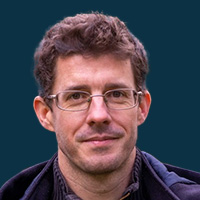
Dr. Alexandre Ponrouch
ICMAB-CSIC, Spain
Alexandre Ponrouch received his Ph.D. in 2010 from the Institut National de la Recherche Scientifique (INRS-EMT, Canada) working on electrodeposition of metals, alloys, and oxides nanotubes and nanowires for application in fuel cells and supercapacitors. He is currently staff researcher at Institut de Ciència de Materials de Barcelona (ICMAB-CSIC, Spain). His research is mainly focused on fundamental electrochemistry applied to the development of new electrolytes, interfaces, and interphases for post Li batteries, including Na-ion, Ca, and Mg.

Dr. Rosalba A. Rincón
Batteries & Supercaps, Wiley VCH
Rosalba A. Rincón obtained her PhD in Chemical Engineering from the University of New Mexico, USA, in 2010. She worked as Postdoc in the Ruhr-Universität Bochum and BASF (Germany) between 2012 and 2016, on the topic of electrocatalysis. She joined Wiley-VCH and the Chemistry Europe journals as a fulltime editor in 2016 and is currently Editor-in-Chief for Batteries & Supercaps and ChemElectroChem.

Prof. Magda Titirici
Imperial College London, UK
Magda Titirici has a BSc from University of Bucharest where she studied chemistry. Magda did her PhD at the University of Dortmund followed by a Postdoc and Habilitation at the Max Planck Institute of Colloids and Interfaces near Berlin. She moved to the UK in 2013 and was first a Reader and after a Professor at Queen Mary University of London. She moved to Imperial in 2019 as a Chair in Sustainable Energy Materials. Magda’s research is on the synthesis and application of sustainable materials in batteries and electrocatalytic processes. She published over 350 papers in this area. Magda is on the list of highly cited researchers by Clarivate since 2018. Her research has been recognised by numerous awards from Royal Society, Royal Society of Chemistry, Institute of Materials and Mines and others.
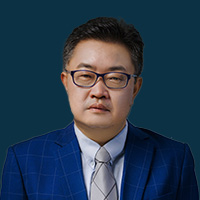
Prof. Aishui Yu
Fudan University, China
Prof. Aishui Yu obtained Bachelor of Science degree in 1987 and Ph.D degree from Fudan University in 1993. He began his academic career as a lecturer at Fudan University. From 1995 to1997, and then he was a Foreign Scholar at Iwate University in Japan. From 1995 to 1997, he worked at the Institute of Materials Research and Engineering in Singapore. After postdoctoral research in Department of Chemistry in University of Oklahoma (1997-1999), he was a Senior Scientist in Excellatron Solid State LLC in USA (2000-2006). In 2006, he joined Fudan University as a Professor and was funded supports by National Natural Science Foundation, 863 Program, 973 Program, and the Shanghai Key Research Fund. His research interests include lithium ion battery, all solid state lithium battery, sodium ion battery, lithium sulfur battery and lithium air battery. He has published more than 200 papers and 50 authorized and applied invention patents.

